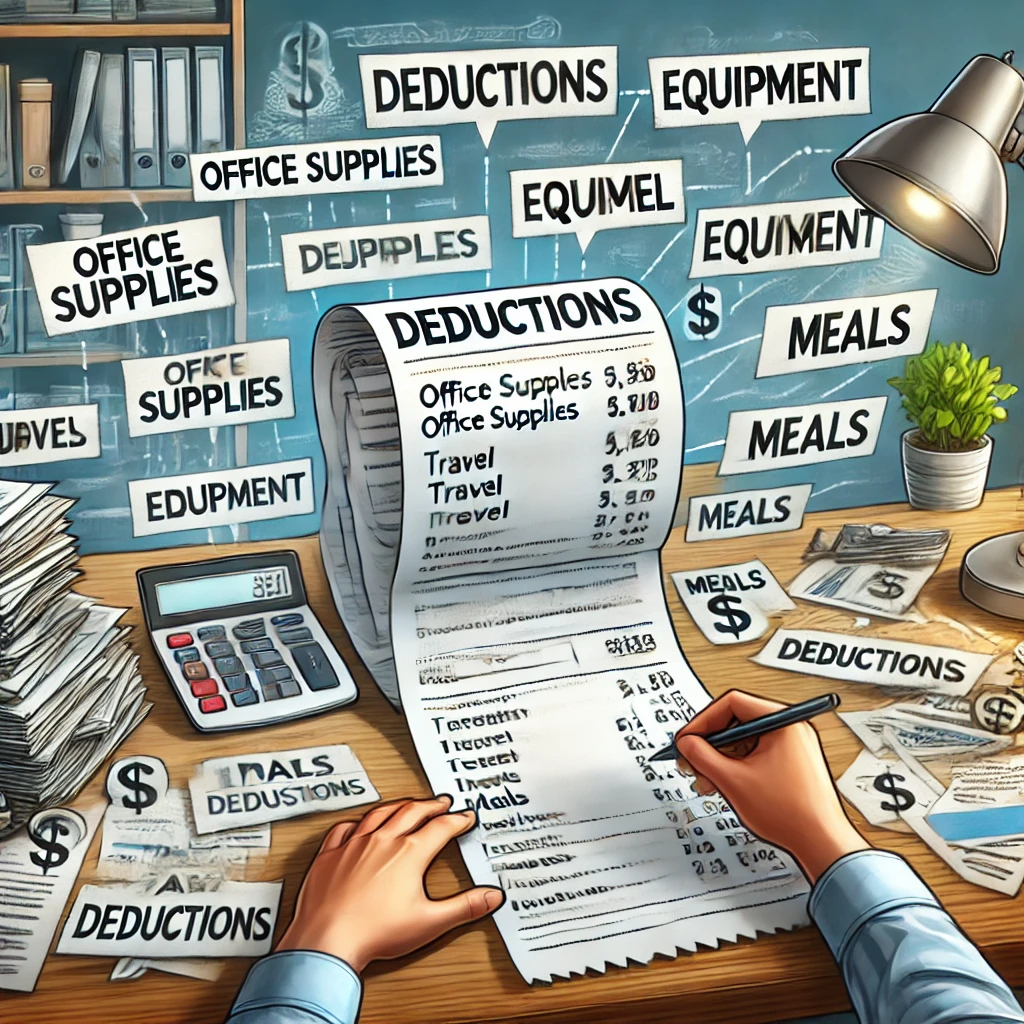Working as a contract worker comes with a lot of perks—flexibility, the freedom to choose projects, and the ability to set your own rates. However, one of the challenges that many contract workers face is managing their taxes. Unlike traditional employees, contract workers don’t have taxes automatically withheld from their income. This can make tax season stressful if you’re not prepared. To help you stay ahead, here are some tax tips specifically for contract workers:

1. Understand Your Tax Obligations
As a contract worker, you are considered self-employed, which means you are responsible for paying your own taxes. This includes:
- Income Tax: You need to pay income tax on all earnings from your contract work.
- Self-Employment Tax: This covers Social Security and Medicare taxes. It’s roughly 15.3% of your net earnings.
- State and Local Taxes: Depending on where you live, you may have additional taxes to pay.
Understanding these obligations will help you budget throughout the year and avoid surprises come tax season.
2. Keep Track of All Your Income
Since you may have multiple sources of income, it’s essential to keep detailed records. Some key points to remember:
- Record Every Payment: Whether you receive payment via bank transfer, check, or even PayPal, make sure to document it.
- Form 1099-NEC: If you earn more than $600 from a client, they should provide you with a Form 1099-NEC. However, you must report all income, even if it’s less than $600, or you didn’t receive a form.

3. Deduct Business Expenses
Contract workers can take advantage of many deductions to lower their taxable income. Here are some common business expenses you can deduct:
- Home Office: If you use a portion of your home exclusively for work, you may qualify for the home office deduction.
- Equipment and Supplies: This includes things like computers, software, office supplies, and even your phone bill if you use your phone for business purposes.
- Professional Services: Fees paid for bookkeeping (Yes, I am a tax deduction!), legal advice, or even tax preparation can be deducted.
- Travel and Meals: If you travel for work, keep records of your expenses, including transportation, lodging, and meals.
Make sure to keep all receipts and records for at least three years, as the IRS may require documentation if you’re audited.
4. Set Aside Money for Estimated Taxes
Unlike traditional employees, contract workers need to pay taxes quarterly. These estimated tax payments cover income tax and self-employment tax. The deadlines are typically:

- April 15
- June 15
- September 15
- January 15 of the following year
Calculate your estimated taxes based on your income and set aside funds regularly to avoid falling behind.
5. Use Accounting Software or Hire a Bookkeeper
Managing finances manually can be challenging, especially when dealing with irregular income and various expenses. Consider using accounting software like QuickBooks or Xero, which can help:
- Track income and expenses automatically.
- Organize your receipts.
- Estimate quarterly tax payments.
Alternatively, you can hire a bookkeeper who specializes in working with contract workers. They can help you stay on top of your finances, so you’re always ready for tax season.
6. Know the Difference Between Tax Credits and Deductions
Understanding the difference between tax credits and deductions can help you maximize your savings:
- Deductions reduce your taxable income, which lowers the amount of income subject to tax.
- Credits reduce the amount of tax you owe dollar-for-dollar.

For example, the Self-Employed Health Insurance Deduction can help reduce your taxable income, while the Earned Income Tax Credit (EITC) can directly reduce your tax bill.
7. Stay Up-to-Date with Tax Law Changes
Tax laws can change frequently, impacting what you owe and what deductions or credits you may be eligible for. Staying informed about these changes can help you make the most of your tax situation.
8. File on Time to Avoid Penalties
Filing your taxes on time is crucial. Missing the deadline can result in penalties and interest on any unpaid taxes. If you can’t file by the deadline, consider requesting an extension, which gives you an extra six months to submit your return. However, remember that an extension to file is not an extension to pay. You still need to pay any estimated taxes owed by the original deadline.
9. Plan for Retirement with a Self-Employed Retirement Plan
Contributions to retirement plans, such as a SEP IRA or Solo 401(k), can reduce your taxable income and help you save for the future. These plans allow contract workers to contribute significantly more than traditional employee retirement plans, offering an excellent opportunity to reduce your tax liability.
10. Consult a Tax Professional
Tax rules can be complex, especially for contract workers with multiple income sources and varying expenses. A tax professional familiar with self-employment tax laws can help ensure that you are taking advantage of all available deductions and credits.
By following these tips, you can better manage your tax obligations and reduce the stress associated with tax season. Staying organized and planning ahead will help you keep more of your hard-earned money and stay financially healthy as a contract worker. If you need help, don’t hesitate to reach out to Prophets Bookkeeper for guidance on tracking expenses, managing income, and preparing for tax season.
